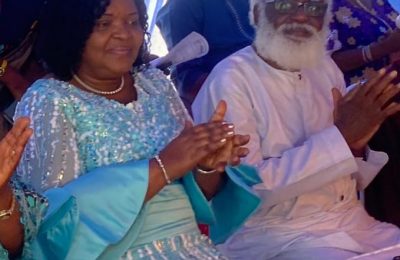
The Central Bank of Nigeria (CBN) has disclosed that about 54 million Nigerian adults, representing 52 per cent, have recognised bank accounts in 2023.
It also stated that 33.9 million Nigerians, or 32 per cent, are excluded entirely from the financial system, while 11 per cent are categorised as being informally captured in financial inclusion.

The CBN stated this on Wednesday in Abuja, adding that about another 5 per cent adult population is captured under the “other formal” financial inclusion category.
The apex bank gave the updates at the Financial Literacy Fair to commemorate the 2024 World Savings Day celebration.
Acting Head of the Consumer Protection Department of the CBN, Ibrahim Yahaya, said the savings culture has improved over time.
Yahaya said, “Over time, savings have improved significantly if you look at it from the deposit side. Deposits in the banking industry have been on the increase over time.
“There are other events that may discourage people from saving. In the time that we have been on this journey, people’s income has always been that agitation that income is never enough to meet my immediate needs and wants. So it has always been like that.”.
On why schoolchildren were invited to witness World Savings Day, Yahaya said the CBN is celebrating the day, an international event that is celebrated on the 31st of October each year with the main objective of promoting the importance of savings.
Yahaya said, “If you instill the culture of savings among the youths and emphasise the importance right from childhood, they would grow up with that discipline, and having that at the back of their minds and even the parents to promote this idea of saving in view of the importance of savings to address some future events that may arise.
“It is very important to save because of eventualities. You know this life is full of many journeys, so you need to save. In case any issue arises, you will be able to have something like a fallback to address the eventualities.”.
Discussing the impact of savings on the economy, Yahaya stated, “Savings is part of deposits. Savings that you have in the bank are part of deposits and used for lending. Lending drives economic growth. What we have as deposits is what the banks use to lend out, especially to the real sector that drives economic growth.”
He charged schoolchildren to take savings as a habit and stressed, “If you say you need to have plenty before you save, then you will never do it. But if you take it as a habit, keep something aside; no matter the challenges, you will see the importance tomorrow.”
Relating savings to inflation, Yahaya noted that “inflation has been there. I know it is more challenging these days. But if you take it as part of a life, a culture, or a life attitude, I think you will find it very easy. If you have the savings, if you have something to fall back on now, you know how the impact will be in these trying times.”
ALSO READ THESE TOP STORIES FROM NIGERIAN TRIBUNE








